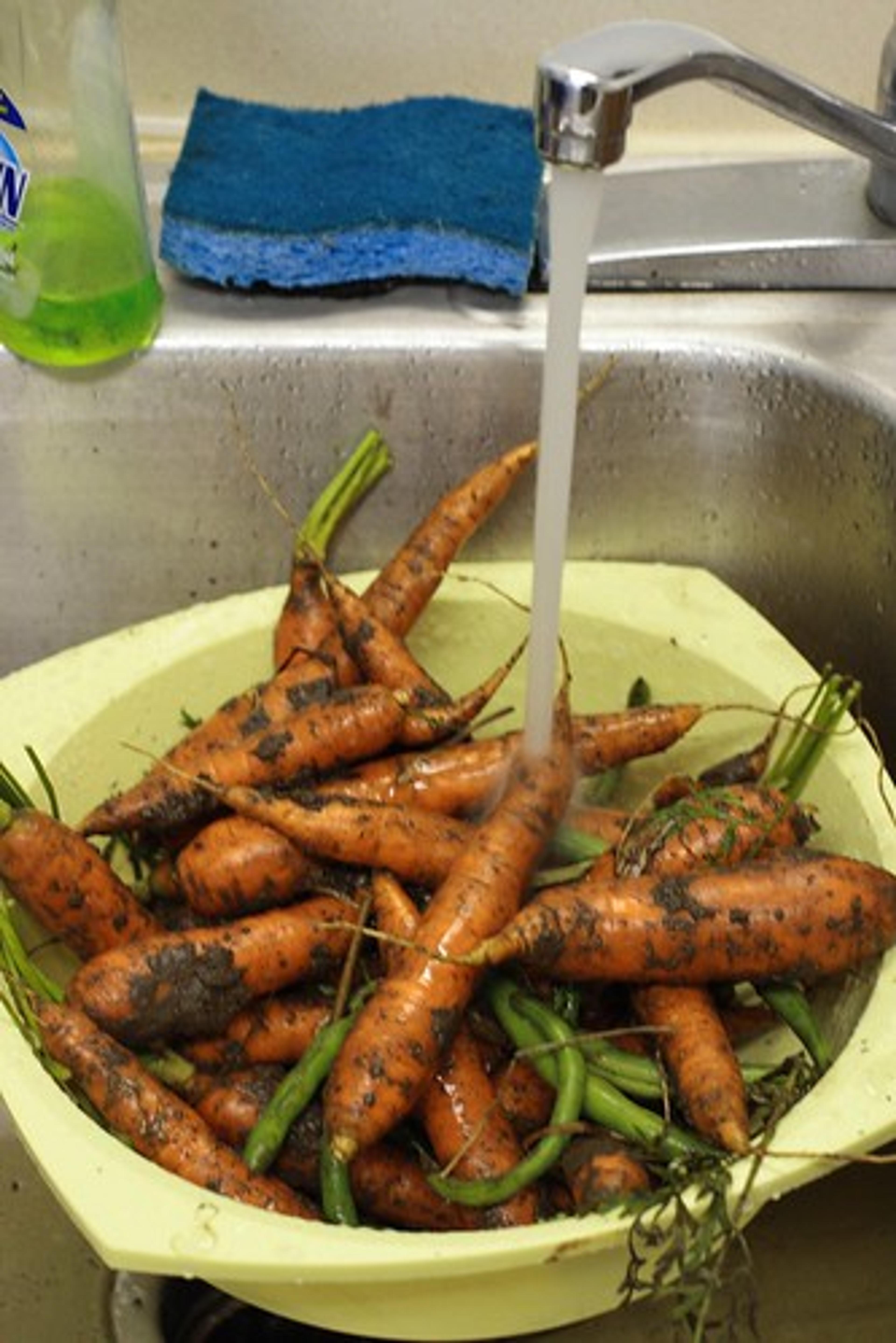Dirty Dozen: Solving the Pesticide Problem
Julia DuBois
| 2 min read

If you’re like me, you were unpleasantly surprised to read that some of your favorite fruits and vegetables have made the Dirty Dozen list. This is the Environmental Working Group’s annual list of produce with the highest levels of pesticides. This year’s front-runner? Apples.
I nearly fell out of my chair when I read that one of my favorite office snacks was a health threat (and was not happy to hear thatcelery, my snack of the day, was second on the list). But once I had time to think about it, I realized that this list doesn’t mean that I need to find new snacks, it just means I have to change how I prepare my current ones.
I’m sure you’ve heard that you should wash your fruits and vegetables before you eat them – but in a world like today’s – it rings even more true. With the levels of pesticides at an all time high in order to extend supermarket shelf-life and increase yields, it’s up to us to be diligent consumers and change how we relate to our produce.
No Real Harm
I don’t recommend that you stop eating fresh produce because of the level of pesticides used on them. According to the Alliance for Food And Farming (who came out with a nifty pesticide residue calculator) the level would have to be much higher than it is now in order to do you any real harm. But I do, however, recommend that you start washing your food more thoroughly, which can help eliminate some of the pesticides, as well as protect you from other bugs.
Check out some easy step for properly washing your produce here.
Organic for the Win
If you’re really freaked out by the notion of pesticides on your food, you can go organic. According to the EWG, picking organic counterparts to the Dirty Dozen is a perfectly acceptable way to avoid consuming pesticides.
Whether you choose to go organic, or use more TLC when washing your produce, make sure that you include a wide array of fruits and vegetables in your diet, because pesticides or no, they are still essential to good health.
What do you think of the Dirty Dozen list? What changes will it mean for your produce selections?
Photo credit: Sarah Cady





